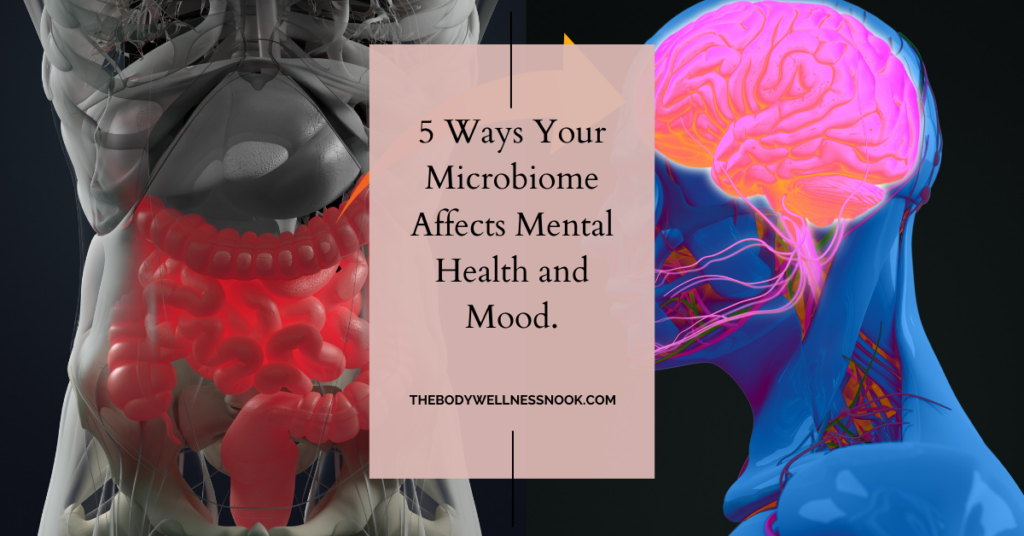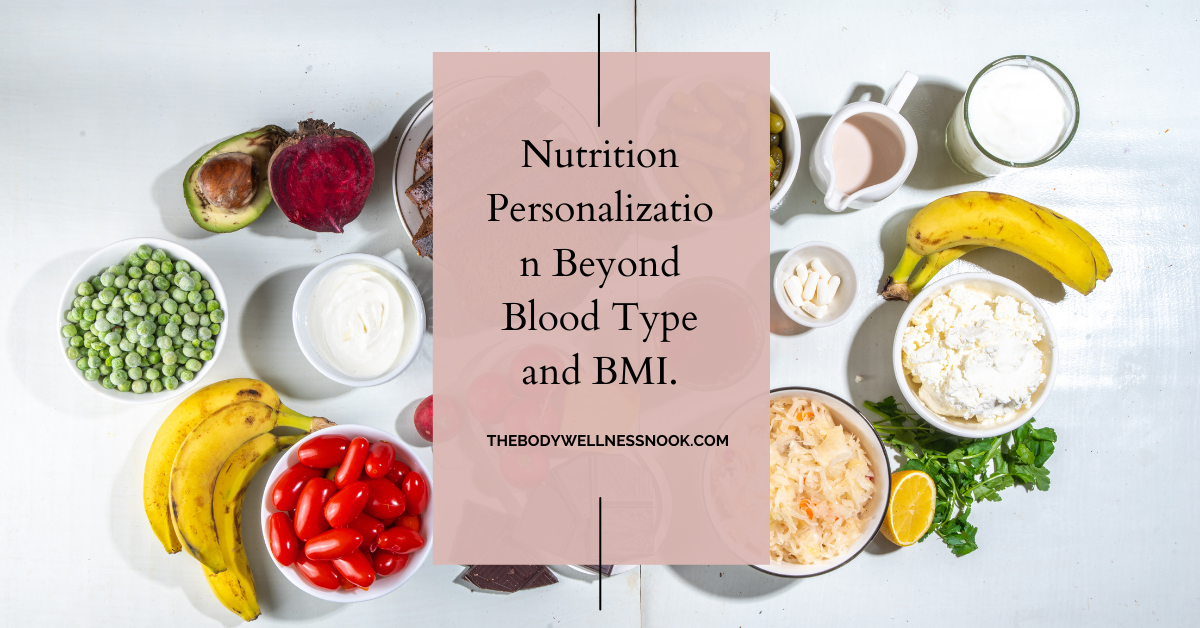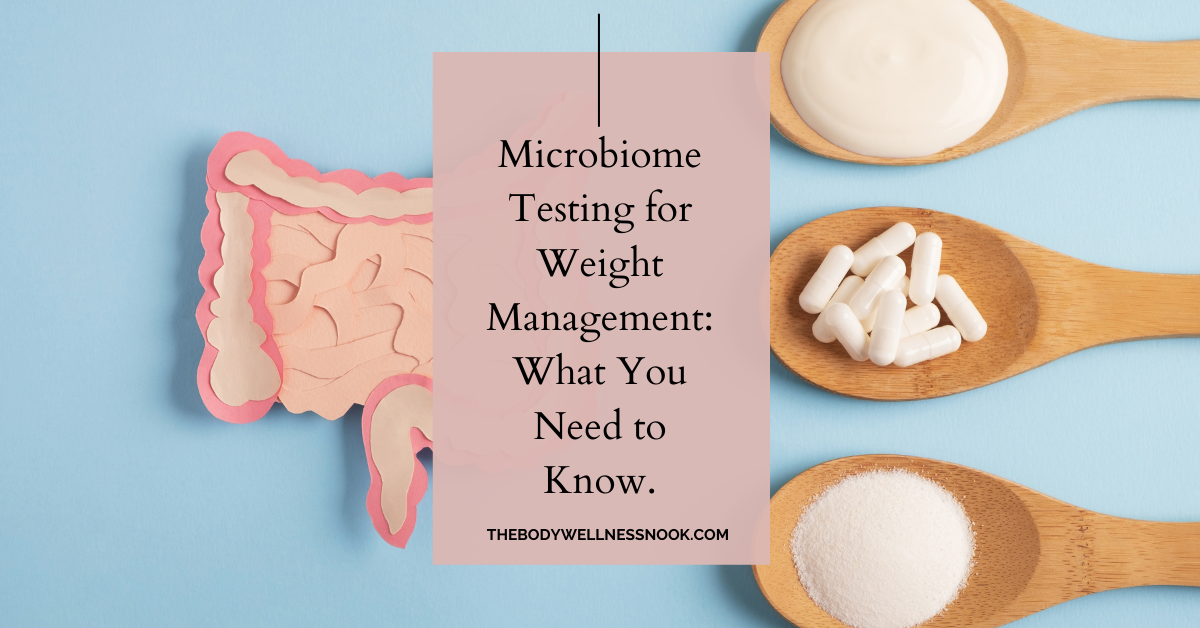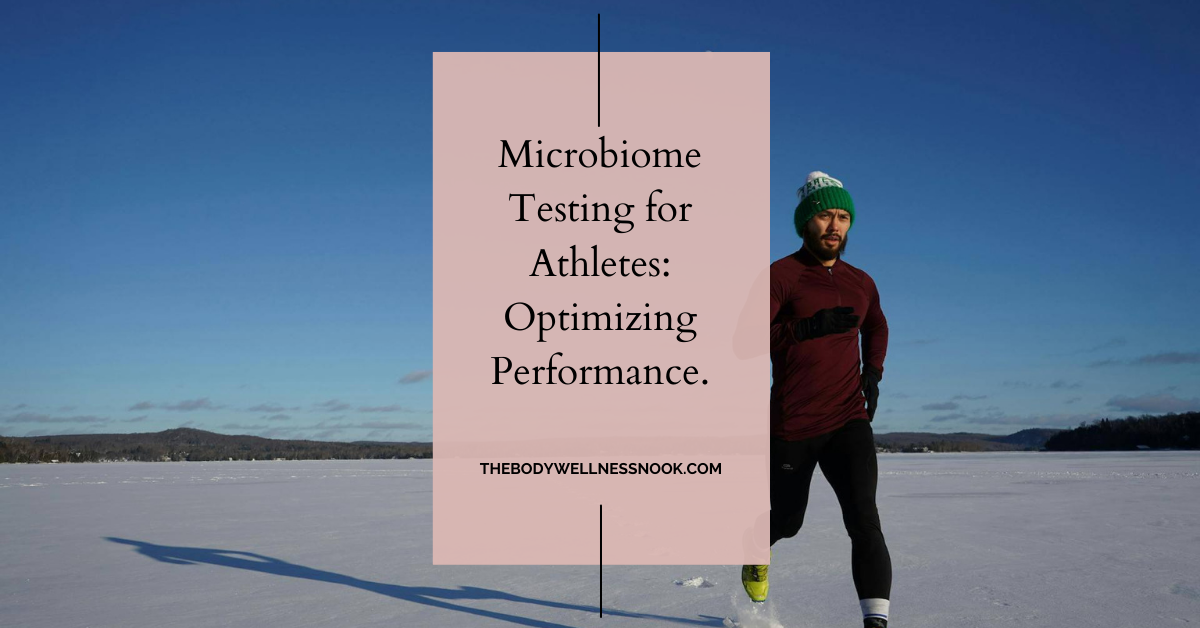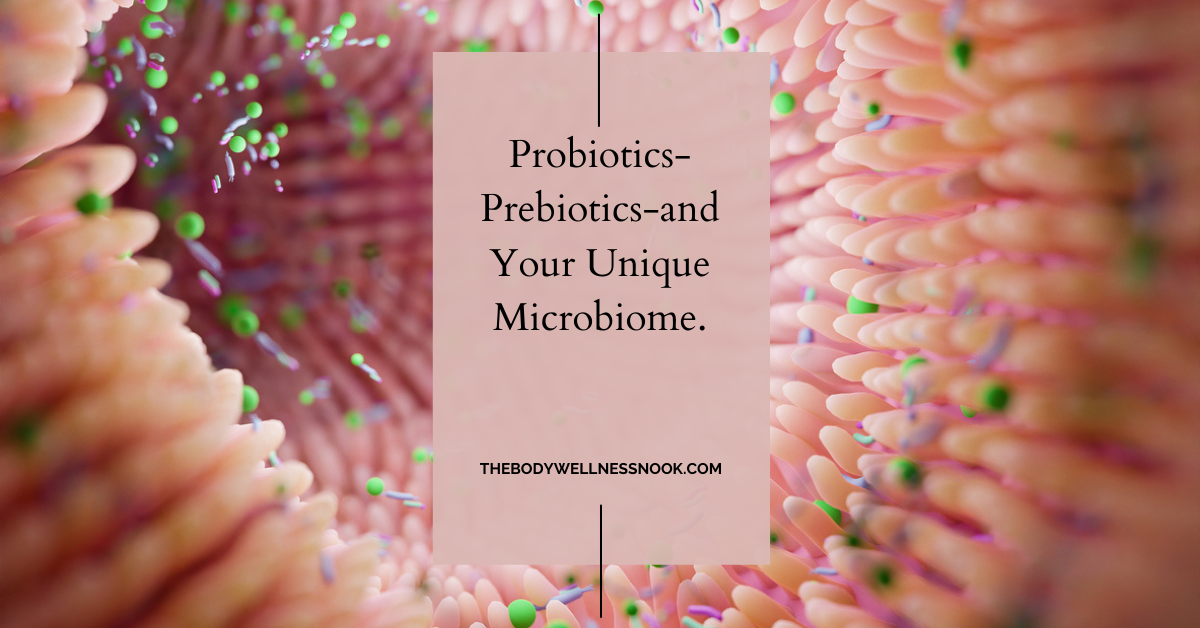The Gut-Brain Connection
I’ve always been intrigued by how our gut talks to our brain. It’s almost like they’re old pals trading secrets. So, let’s jump into the whole story of gut bugs and how they might just have a say in whether we’re feeling up or down.
Understanding the Gut Microbiota
Our guts are pretty much Party Central for trillions of tiny guests. These little critters, called microbiota, aren’t just hanging around aimlessly. They’re like backstage crew, helping with everything from soaking up nutrients to sending brainy messages, fighting off unwelcome visitors, and even helping our immune systems to chill out. Here’s a fun fact: around 80% of our immune system hangs out right here in the gut! It’s no wonder these gut-guys have such a big say in how we feel, mind-wise and body-wise (Loma Linda University Health News).
Gut Health and Mental Disorders
If your gut is upset, your mood can be too! Folks dealing with tummy trouble like irritable bowel syndrome or ulcerative colitis often find themselves wrestling with the blues or jitters (Loma Linda University Health News). This gut-mind link highlights just how connected everything is in our bodies.
The makeup of our gut’s inhabitants can seriously shake things up with our mood. Imbalances, known as dysbiosis, might stir up mental challenges like anxiety and depression. It seems some bacteria, such as Firmicutes and Bacteroidetes, like to meddle with our mind’s business more than others do (PubMed).
Cutting-edge research is discovering how gut-brain chatter affects our mood, thinking, and even behavior. The gut-brain axis, which connects tummy troubles with our emotional wellbeing, shows us how a knot in our stomach might really be tied to what’s on our mind (Harvard Health Publishing).
Feeling curious about sprucing up your gut for better mental health? Check out our article on personal microbiome optimization or look into the benefits of microbiome testing for some tailored advice.
Impact of Gut Microbiota on Mental Health
Exploring the connection between gut bugs and our mood swings? That’s some heady stuff! Turns out, those trillions of tiny critters in our gut have a lot to say about how we’re feeling. Let’s break it down with things like serotonin, often dubbed our natural mood booster, and the calming GABA. How do they play into all this? Let’s chat!
Serotonin and GABA Production
So, about serotonin: Imagine your brain’s on a beach, relaxed and happy—serotonin’s the sun making it happen. A hefty chunk of this “feel-good” chemical actually comes from—you guessed it—your gut! Surprisingly, GABA, another brain-soothing superstar, is part of this gut madness too. When your microbiota works like clockwork, GABA levels are up, meaning stress and anxiety shrink to a whisper.
When things go haywire there, you might not just dance to different beats, your brain does too! Less GABA means more stress. Your gut’s like a DJ for your brain’s party.
Neurotransmitter Signaling
Beyond just making serotonin and GABA, your gut critters are broadcasting signals loud and clear to your brain! They’re real influencers, sending mood-altering messages about how we think and feel. Think of them as the intermediaries between your gut and brain, keeping things zen.
Dive a bit deeper, and you’ll find these gut folks teaming up to cook compounds like dopamine—another happy player—and even serotonin’s building blocks. They cross into the brain zone, knitting a tight web of mental wellness.
Ever noticed how some folks with depression mention gut troubles? Science backs it up. Turns out, they’ve got differing microbial mixes compared to the chirpier ones. Depressed peeps might have more of bacteria like Prevotella and Klebsiella tagging along, while they’re missing out on their pals Bacteroidetes and Roseburia. Check out the lineup below:
| Bacteria | Higher in Depressed Patients | Lower in Depressed Patients |
|---|---|---|
| Prevotella | ✅ | ❌ |
| Klebsiella | ✅ | ❌ |
| Clostridium | ✅ | ❌ |
| Bacteroidetes | ❌ | ✅ |
| Ruminococcus | ❌ | ✅ |
| Roseburia | ❌ | ✅ |
Spotting how gut microbes handle neurotransmitter chitchats might just be the ticket to new mental health solutions. Personalized diet knocks and gut checks could soon be the way to go. Curious what that means for you? Peek into our personalized nutrition science and how to read your microbiome test results.
Learning about the gut’s role in juggling vital neurotransmitters? Now, that’s a backstage pass to understanding mental wellness. If your curiosity’s tingling, take a look at gut microbiome health and microbiome diversity for more inside scoops.
Disorders and Gut Microbiota
Getting the low-down on how tummy troubles mess with the noggin’ is key to realizing just how much our gut bugs meddle with our mood.
Gastrointestinal Disorders and Mental Health
When I ponder over the bond between belly issues and brain funks, it hits home just how big a deal this link is. Folks wrestling with tummy twists like irritable bowel syndrome (IBS) or ulcerative colitis often find themselves battling the likes of anxiety and depression too (Loma Linda University Health News). That just goes to show how gut stuff and head stuff are really chicks of the same nest.
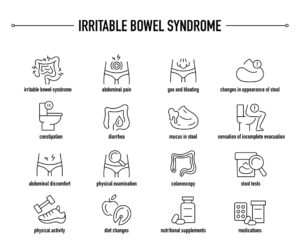
Take IBS, for instance. It’s a classic case where the old gut-brain hotline, aka the vagus nerve, plays mediator, ferrying signals back and forth, tweaking our moods and brainy stuff along the way. What you eat and your gut health can sway your headspace in ways you’d never guess. Check out more on this from Harvard Health Publishing.
Here’s a sneak peek at how some common tummy troublemakers tag-team with head issues:
| GI Disorder | Mental Health Impact |
|---|---|
| Irritable Bowel Syndrome (IBS) | Higher rates of anxiety and depression |
| Ulcerative Colitis | Increased depression levels |
Microbial Dysbiosis in Mental Disorders
Dysbiosis? That’s just fancy talk for when your gut’s microbe party gets outta whack. Basically, the peacekeepers and troublemakers among your gut bugs get into a raging ruckus, which might even stir up mental hiccups. Find out that folks with conditions like autism spectrum disorder (ASD) and schizophrenia have some unusual critters living in their guts. For example, Clostridium difficile and Clostridium clostridiioforme hang out in the guts of those with ASD, and Bacteroides eggerthii gets cozy with folks who have PTSD (PubMed).
What goes on in the microminiature universe of our guts can send ripples to our gray matter. Research spotted distinct gut micro-markers in resilient individuals who keep it together during stress-afflicted times (NPR). Balancing those do-gooder and misfit bacteria is non-negotiable; an upset can cause havoc like inflammatory woes, metabolic glitches, sugar troubles, or even brain fog.
| Mental Disorder | Specific Gut Microbiota |
|---|---|
| Autism Spectrum Disorder (ASD) | Clostridium difficile, Clostridium clostridiioforme |
| Post-Traumatic Stress Disorder (PTSD) | Bacteroides eggerthii |
Hungry for more gut-head connections? Check out my deep dives into microbiome test results interpretation and uncover the best personalized probiotic recommendations. Stay curious about how your belly’s wellness boosts your mental mojo and navigate your perfect gut groove through personal microbiome optimization.
Probiotics and Mental Health
I’ve always been curious about the effect of gut health on our brains. It’s like a science experiment happening in our bellies! Knowing how probiotics can make us mentally happier is just something I had to share. Getting my gut game strong has shown me a whole new side of mental wellness.
Role of Probiotics in Mood Regulation
These little friendly bugs, probiotics, work wonders for our mood. They’re the good guys in our guts, holding the fort and chatting with our brains through something fancy called the gut-brain axis.
So, what do probiotics get up to?
- Cutting down on stress hormones: Ever been stuck in traffic and felt like screaming? High cortisol might be to blame. Probiotics can turn down the cortisol volume, keeping me chill.
- Tuning the stress management system: My brain and body play tag-team during stressful times thanks to the hypothalamic-pituitary-adrenal axis (HPA). Probiotics keep ‘em in sync, so I’m less of a stress ball.
- Slashing those moody inflammation triggers: You know when you just feel blah? Inflammation could be the culprit. Probiotics help give it the boot and bring balance to my emotions.
Some researchers even claim probiotics can act like feel-good meds, tackling the blues after they pop up (PubMed Central). Curious souls might want to peek at gut microbiome health for more mind-gut gossip.
Effects on Stress and Anxiety
Probiotics have a few more tricks up their sleeves—they’re like my backstage crew, managing the drama of stress and anxiety. Seriously, adding them to my meal plan has made life a lot less dramatic.
- Boosting good gut residents: These probiotics boost the ranks of my gut’s champions like Bifidobacterium and Lactobacillus, sidestepping mental woes.
- Cranking up the happy brain chemicals: These good guys help make serotonin and GABA—the feel-good squad—so I stay even-keeled.
Here’s a simple rundown of what they do:
| Probiotic Perk | Mood Boost |
|---|---|
| Less cortisol action | Chill vibes |
| HPA axis on point | Better stress-handling |
| Fewer inflammatory troublemakers | Happy mood |
| More brain-boosting bacteria | Extra serotonin & GABA |
For a deeper dive into how your diet shakes hands with gut health, check right here: personalized probiotic recommendations.
Adding probiotics brushed up my mental health like sprucing up my place. The link between gut and brain isn’t just a theory; it’s personal. If you’re keen on stepping up your probiotic knowledge, have a chat with your doc about what clicks for you. For more juicy reads, hop on over to personal microbiome optimization and microbiome test results interpretation.
Diet and Gut Health
When I started paying attention to what I gobble up daily, I quickly realized it wasn’t just my waistband I was shaping—my gut’s little residents, the microbiota, were involved too. These tiny critters have a hand in both how my belly and my brain behave. So, gosh, diet sure helps steer the ship for my digestive and mental scene.
Influence of Dietary Fiber
Fiber’s like that unsung hero of the food world. When I decided to go with a fiber-heavy diet, my digestion got smoother, and let me tell you, my mood kicked up a notch too! This stuff boosts those gut bacteria, like Bifidobacterium, Lactobacillus, and the tongue-twister Faecalibacterium (PubMed Central).
Different kinds of fiber shake up the gut.
| Fiber Type | Buddy Bacteria |
|---|---|
| β-glucans | Bifidobacterium, Lactobacillus |
| Resistant Starch | Akkermansia, Roseburia |
| Cellulose | Faecalibacterium, Bacteroides |
These microbes ferment soluble fiber, and voilà—short-chain fatty acids (SCFAs) come to life, especially a handy one, butyrate. This wonder supports the gut wall and cools inflammation.
Role of Polyphenols in Gut Microbiota
Move over, fiber, let polyphenols take the stage. Found in goodies like berries, veggies, nuts, red wine, and green tea, these bad boys pack a punch. Since munching more of these, my brain feels more on point, and there’s a whole bacteria fest happening in my belly. Polyphenols bump up the numbers of Bifidobacterium and Lactobacillus (PubMed Central).
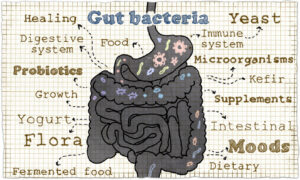
It’s like a funky dance-off—the more polyphenols, the less doom and gloom in the mental health department. Peek at these goodies and their gut rewards:
| Polyphenol Source | Gut Changes |
|---|---|
| Red Wine | More Bifidobacterium, Lactobacillus |
| Green Tea | Harmful bacteria—who needs ’em? |
| Nuts | B. fragilis takes a step back, Faecalibacterium steps up |
| Fruits | Helps good bacteria party on |
Polyphenols act like party planners for microbes, setting the vibe right and helping with those blues.
With all this in my back pocket, I’ve got a handle on weaving these fiber and polyphenol powerhouses into my meals to pump up the gut action. And if you’re curious, I went on my own adventure with personal microbiome tweaking.
More deets on the grub-gut-brain connection can be found at gut microbiome tales and tailored meal secrets.
Food Choices and Microbiota
The more I delve into what I eat, the more I notice the colossal impact it has on my mood. That’s right—the gut and brain are more of a tag team than you might think. Turns out, our grub choices can change the gut’s bacterial buddies, which might just tweak our mental health. Let’s chat about how nuts and fermented foods play into all this and why I’ve made them stars in my snack show.
Nut Consumption and Gut Microbiota
Nuts are like tiny superheroes packed with fiber, healthy fats, antioxidants, and polyphenols. They do a cool party trick: they shake up the microbe crowd in our gut. Gobbling down walnuts every day can boost Firmicutes genera, especially those nifty butyrate-making guys like Faecalibacterium and Roseburia (PubMed Central). Almonds, meanwhile, jazz up the microbe variety and kick out some unfriendlies like B. fragilis.
| Nut Type | Microbial Effect | Reference |
|---|---|---|
| Walnuts | Boosts Firmicutes gang | CAS Insights |
| Almonds | More microbe variety, less B. fragilis | CAS Insights |
Munching on nuts seems like an exciting avenue to tweak gut vibes in a good way. If you’ve been poking around personalized nutrition and gut health, nuts might just be your new best friends.
Fermented Foods and Microbial Diversity
Let’s dive into the tangy world of fermented foods. We’re talking sauerkraut, kimchi, kefir, and yogurt—they’re teeming with probiotic bacteria and yeast. These groovy bites can bump up gut microbe variety and introduce friendly faces like Bifidobacterium and Lactobacillus (PubMed Central).
Fermented dairy stuff especially has a knack for pumping up certain bacteria and giving the gut a little extra pep. More microbial variety often links to happier guts, and hopefully happier minds.
Here’s a neat rundown:
| Fermented Food | Microbial Benefit | Reference |
|---|---|---|
| Sauerkraut | More microbe variety | CAS Insights |
| Kimchi | Invites Bifidobacterium and Lactobacillus | CAS Insights |
| Kefir | Perks up gut function | CAS Insights |
| Yogurt | Boosts beneficial bacteria | CAS Insights |
Adding fermented foods to my eating habits has been like finding the missing puzzle piece for better gut vibes. If you’re diving into the world of personalized nutrition science or hoping to give your gut microbiome health a makeover, fermented foods are definitely something to chew on.
Strategies for Gut-Brain Health
Keeping that gut-brain link strong is key to feeling awesome all around. Let me clue you in on some tricks that target those sneaky psychological woes while keeping your digestive system happy.
Psychological Factors and Gut Distress
Feelings like stress, depression, and anxiety can mess with your gut big time. You got stress? Yeah, it can mess up how your gut grooves, twisting things around and turning up the volume on pain signals. And if you’re juggling functional GI issues, this mind-gut bond is even more crucial.
Dealing with your feels can seriously up your digestion game. Turns out, dealing with stress or downer moods might even work better than your typical treatments. Here’s a couple of hacks to consider:
- Mindfulness and Meditation: Tuning into the zen vibes can really take the edge off.
- Cognitive Behavioral Therapy (CBT): This brain workout can knock down anxiety and depression, which does wonders for your belly.
- Regular Exercise: Getting your body moving is a fantastic stress buster that lifts your mood and gives your gut a thumbs up.
For a more personal take on managing the mind-body tango, don’t miss our personal microbiome optimization guide.
Promoting Digestive Comfort
Keeping your belly content means tweaking your eats and how you roll through life. Here’s the game plan:
- Balanced Diet: Pack your meals with fiber, polyphenols, and probiotics to keep your gut pals happy. Dive into the deets on influence of dietary fiber and the role of polyphenols in gut health.
- Hydration: Sipping those fluids helps everything flow smoothly down there.
- Chewing Food Thoroughly: Really chewing your chow beats giving your belly extra work and helps soak up those nutrients.
- Stress Management: Like we discussed, chilling out with mindfulness, exercising or seeing a therapist can make your gut sing.
Table: Psychological and Physical Interventions for Gut Health
| Intervention | Psychological Benefits | Physical Benefits |
|---|---|---|
| Mindfulness and Meditation | Chills you out | Helps your gut groove right |
| Cognitive Behavioral Therapy | Tames anxiety and the blues | Keeps stress from messing with your gut |
| Regular Exercise | Boosts your spirits | Gets things moving along nicely |
| Balanced Diet | Clears your mind fog | Builds a strong microbiome crew |
Take a peek at our article on gut microbiome health and switch up your diet and life for lasting impact.
By looking after your mental state and keeping physically active, you’re giving your belly and brain the upper hand. For more pro tips, check out personalized nutrition science.
Microbiome Modulation
Dietary Interventions
Let’s chat about eating your way to a happier mind! Believe it or not, what you munch on can shake hands with those little bugs living in your gut and, oh boy, they can dance your mental blues away. Loads of brainy folks have been peeking into how food jazzes up our gut, showing us that chomping on certain eats does wonders for our gut buddies.
For instance, when it comes to fiber-rich goodies, think berries, beans, and whole-grain toast. These are like a fiesta for your gut guests, especially the friendly ones.
| Fiber Type | Party Boosters for Good Bacteria | Bouncers for Bad Bacteria |
|---|---|---|
| Dietary Fiber | Bifidobacterium, Lactobacillus, Akkermansia, Faecalibacterium, Roseburia, Bacteroides | Enterobacteriaceae |
Chow down on high-fiber treats and your belly bugs multiply, which is ace for both your mind and body. Fiber gets broken down into SCFAs—like a cozy blanket for your gut, it keeps inflammation at bay and the barriers strong.
A mishmash of fibers, like β-glucans, resistant starch, and good ol’ celery stringiness can do wonders. Need a map for gut-friendly munching? Pop over to our personalized nutrition science page for the scoop.
Prebiotic and Probiotic Supplements
Now, let’s yak about prebiotics and probiotics. They’re the tag team for tummy and twaddle! Probiotics can slash gut inflammation and bolster tummy walls. In a nifty study, popping probiotics gave a thumbs-down to inflammation and yay’ed to a sturdy gut (PubMed Central).
| Probiotic Perks | What They Do |
|---|---|
| Stress Smasher | Gives stress hormones a time-out |
| Mind Menders | Perks up like happy pills |
| Cortisol Curber | Calms the stress monster |
| Inflamm-off | Kills the fire |
These helpful microbes are turning heads as possible mood-busters. They flex their muscle by tackling cortisol and giving you that antidepressant swing (NPR).
But, hold your horses. While most probiotics are as friendly as a grandma’s hug, sometimes the label tells fibs or doesn’t spill all the beans. So, chat with your doc before swapping your meds for these tiny pals. If you want to find your perfect probiotic fit, give a whirl to our personalized probiotic recommendations.
For a deeper delve into keeping that gut in tip-top shape, mosey over to our reads on personal microbiome optimization and gut microbiome health. These nuggets are packed with tips on how to dial in your diet and supplements for a happier head and tummy!

